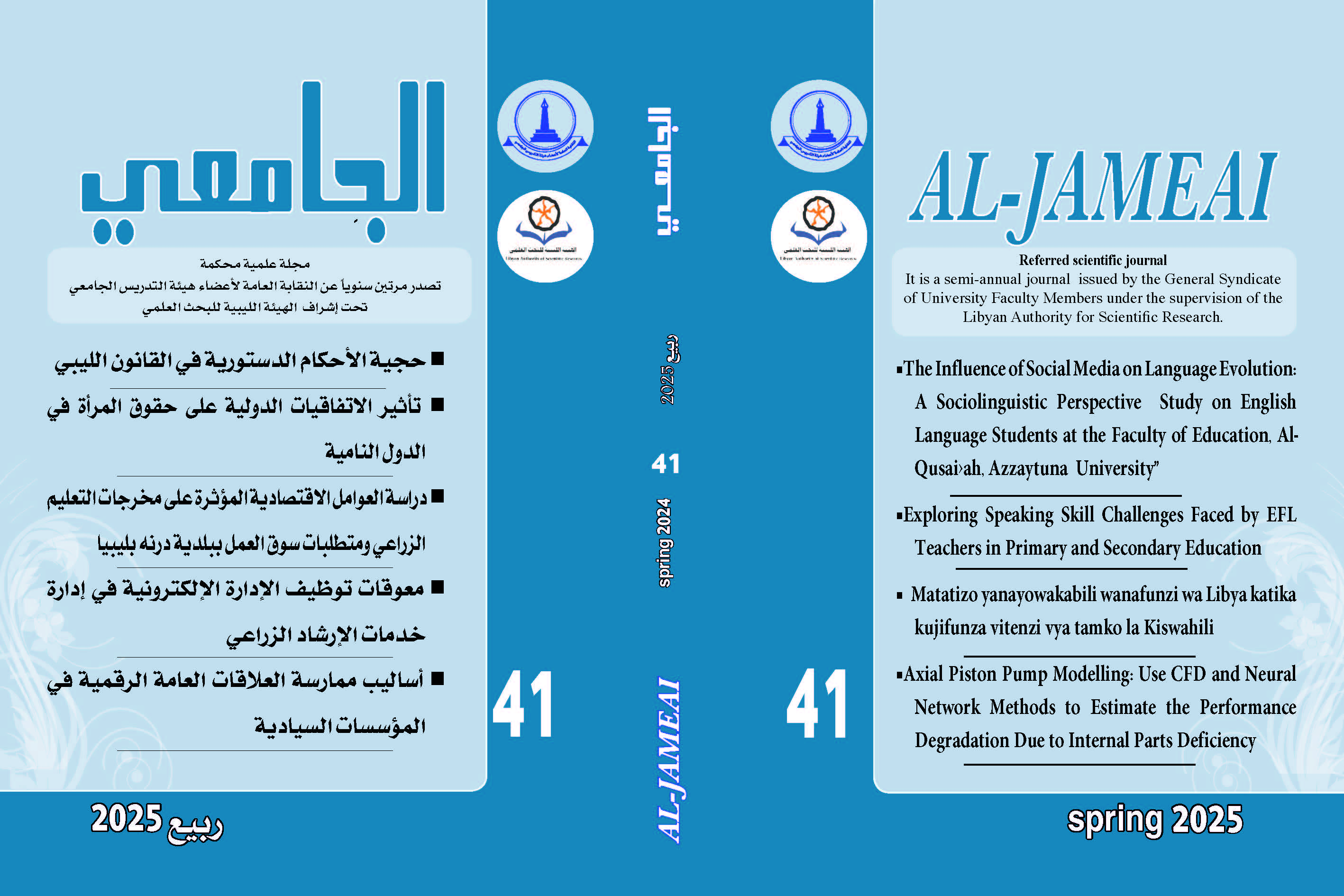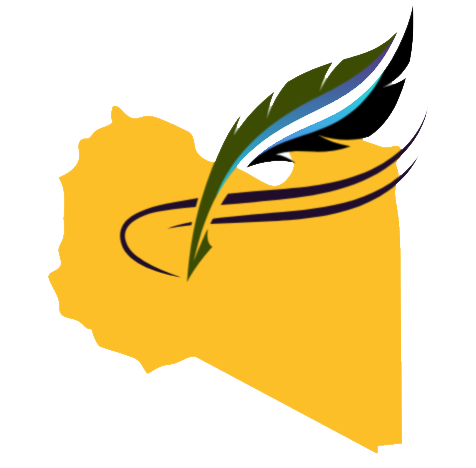Libyan MA Students' and Teachers' perspectives towards direct and indirect written corrective feedback in writing skill
Abstract
ABSTRACT :
This study explored the perspectives of MA students and teachers regarding direct and indirect written corrective feedback (WCF) in L2 writing instruction at a Libyan university, employing a mixed-methods approach. Quantitative data from an online questionnaire, administered to 33 students, revealed a strong preference for direct feedback, characterized by explicit error correction and detailed comments on language and organization. Qualitative data, gathered from semi-structured interviews with four teachers, highlighted their use of a combination of direct and indirect methods, influenced by time constraints and pedagogical beliefs. The findings revealed a discrepancy between student preferences for clear, specific guidance and teachers' challenges in providing exhaustive corrections, emphasizing the need to align feedback practices with student expectations.
The research underscores the importance of WCF in enhancing L2 writing skills, while highlighting the necessity for educators to adjust their feedback strategies to better match student preferences. It suggests that professional development programs focusing on effective feedback techniques, coupled with institutional support for streamlining feedback processes, could significantly enhance writing outcomes. Furthermore, the study suggests that incorporating strategies such as peer editing, automated feedback tools, and structured rubrics can help alleviate the burden on teachers. Ultimately, this research contributes valuable insights into the dynamics of WCF, emphasizing the importance of fostering a responsive and structured feedback approach that caters to the needs of both students and instructors.
المستخلص:
تناولت هذه الدراسة استكشاف وجهات نظر طلاب الماجستير ومعلميهم فيما يتعلق بالتغذية الراجعة التصحيحية الكتابية المباشرة وغير المباشرة في تعليم الكتابة باللغة الإنجليزية كلغة ثانية في جامعة ليبية. استخدمت الدراسة منهجية مختلطة، حيث تم جمع بيانات كمية من خلال استبيان عبر الإنترنت من 33 طالبًا، وبيانات نوعية من خلال مقابلات شبه منظمة مع أربعة معلمين. كشفت النتائج عن تفضيل كبير بين الطلاب للتغذية الراجعة المباشرة، التي تتميز بالتصحيح الصريح للأخطاء والتعليقات التفصيلية حول اللغة والتنظيم. وأظهرت البيانات النوعية أن المعلمين يستخدمون مزيجًا من الأساليب المباشرة وغير المباشرة، متأثرين بعوامل مثل ضيق الوقت والمعتقدات التربوية. كشفت النتائج عن وجود تباين بين تفضيلات الطلاب للتوجيه الواضح والمحدد والتحديات التي يواجهها المعلمون في تقديم تصحيحات شاملة، مما يؤكد على الحاجة إلى مواءمة ممارسات التغذية الراجعة مع توقعات الطلاب.
يؤكد البحث على أهمية التغذية الراجعة التصحيحية الكتابية في تحسين مهارات الكتابة باللغة الإنجليزية كلغة ثانية، مع تسليط الضوء على ضرورة قيام المعلمين بتعديل استراتيجيات التغذية الراجعة الخاصة بهم لتتوافق بشكل أفضل مع تفضيلات الطلاب. ويقترح البحث أن برامج التطوير المهني التي تركز على تقنيات التغذية الراجعة الفعالة، إلى جانب الدعم المؤسسي لتبسيط عمليات التغذية الراجعة، يمكن أن تعزز بشكل كبير نتائج الكتابة. بالإضافة إلى ذلك، تشير الدراسة إلى أن دمج استراتيجيات مثل تحرير الأقران، وأدوات التغذية الراجعة الآلية، والقواعد المنظمة يمكن أن يساعد في تخفيف العبء على المعلمين. في نهاية المطاف، يساهم هذا البحث برؤى قيمة في ديناميكيات التغذية الراجعة التصحيحية الكتابية، مع التأكيد على أهمية تعزيز نهج تغذية راجعة مستجيب ومنظم يلبي احتياجات كل من الطلاب والمعلمين.
Downloads









